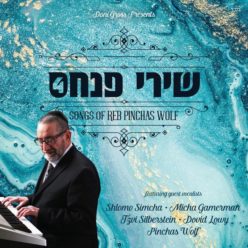Megillas Mordechai
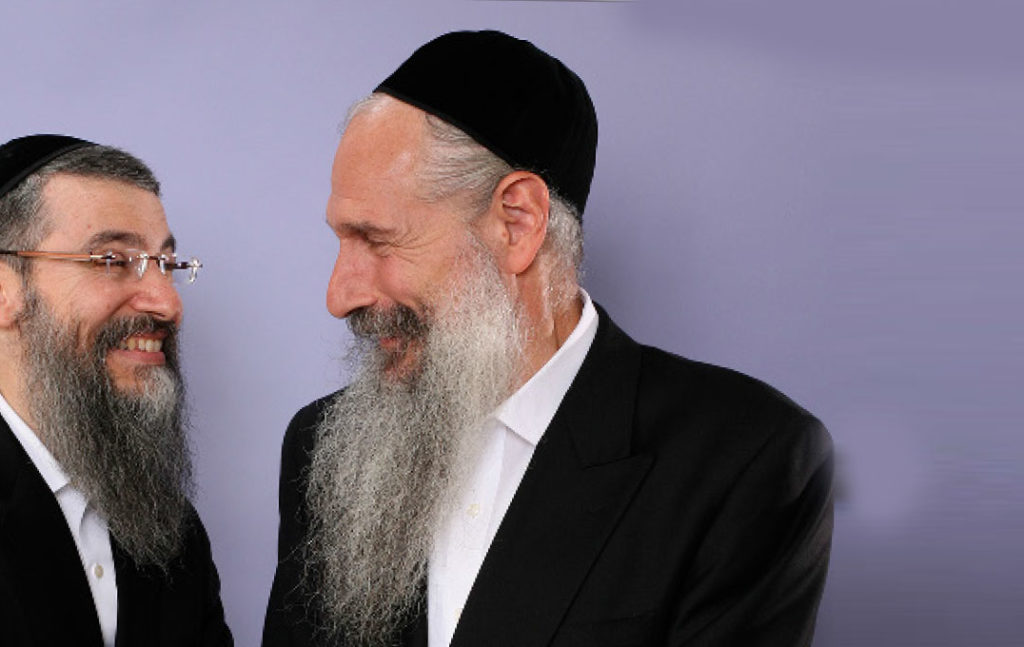

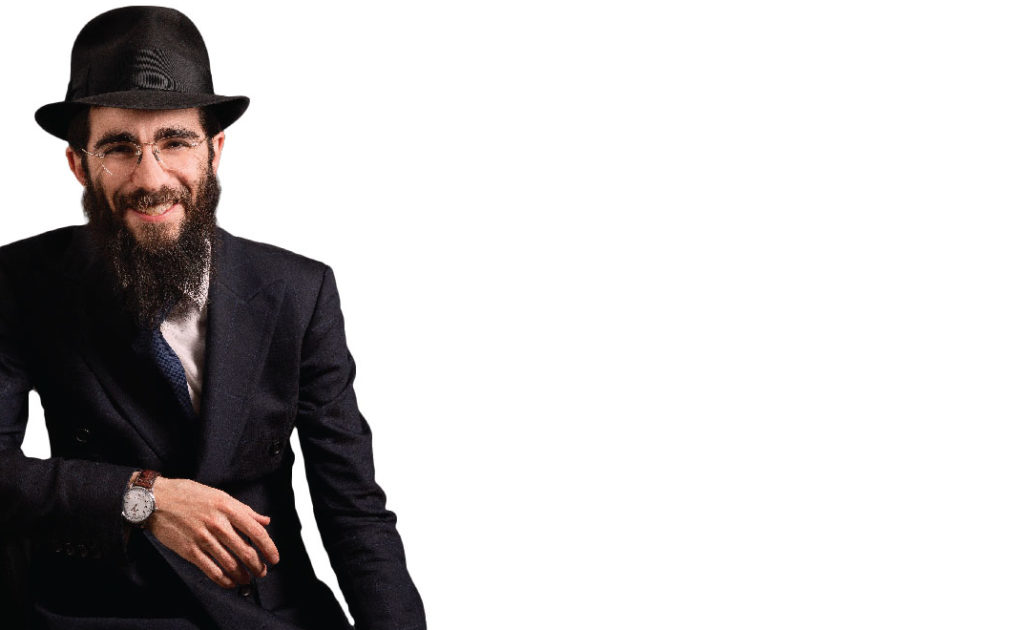
Singer and performer Eli Marcus (brother of 8th Day’s Shmueli and Bentzi Marcus) says that he has been trying to compose songs of his own for years, but “Yogati,” the title track of his new album, marks the first time he felt his efforts had borne fruit good enough to share. “Baruch Hashem, finally I came up with something that was worth putting out, and the idea behind the song, ‘Yogati umatzasi taamin,’ kind of encapsulates the theme of this whole album. Nothing we do is ever really enough, but we never give up, just keep trying to get better, and then we find the light.”
The song is based on the saying that translates as “If someone tells you they have worked and not found, do not believe him. If someone tells you they have not worked and have found, do not believe him. But if someone tells you ‘I have worked and found’ — believe him.” It’s Eli’s upbeat ode to the process of investing much effort and believing in eventual success — and that resonates with so many who can identify with the universal message.
The Yogati album was constructed over time. Eli bought the first song over two years ago. “I received ‘Bechol Kocho’ one day from a brand-new composer, Shloime Zaltzman from Manchester, and there was something deep in his musical style, something different. I soon settled on that song, and began to work on it, while the bulk of the songs in the album only came to me during the past year.
Some of those songs, including compositions by Pinky Weber, Moshe Laufer, and Yitzy Waldner, have a distinctly heimish feel. “It’s not accidental — I really do like a traditional touch,” Marcus says. One of the biggest hits of the album is the final track, “Letav Uvid,” a beautiful ballad-style song by Avrumi Berko, with catchy Yiddish lyrics and Marcus’s superb vocals contrasted with the innocent sound of a child soloist.
(Originally featured in Mishpacha, Issue 751)
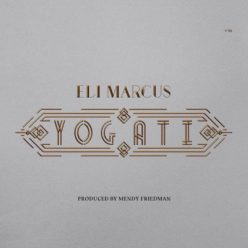
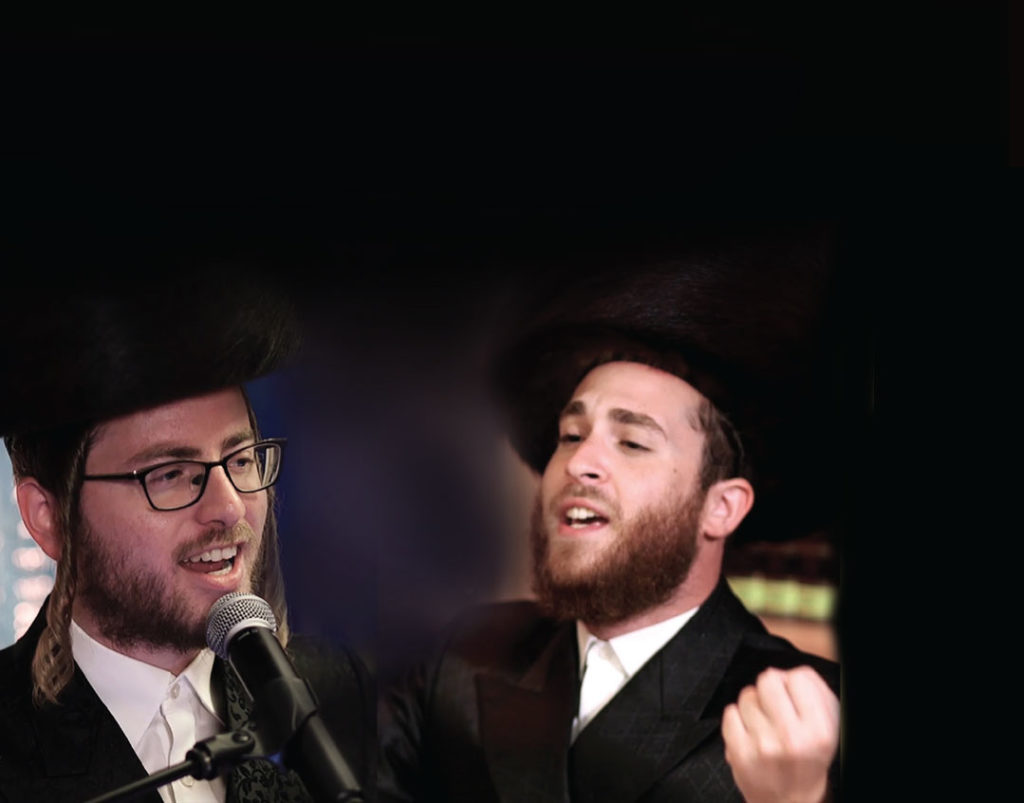
Fifteen years ago, an Israeli singer named Yuval Sela composed a song called “Eliyahu Hanavi” while attending a bris. He thought the song was pretty good, but apparently few others seemed to agree — it never took off, and after several tries, he gave up singing it.
In totally different circles, chassidic Israeli musician Dudi Feldman heard the song recently at a Motzaei Shabbos kumzitz, where it had migrated 15 years later. “I noticed that when we sang it, we could repeat the words ‘Eliyahu Hanavi zachur latov’ for 40 minutes straight, and every round was more and more enthusiastic. It seemed to pick up energy as we sang.”
Impressed with the niggun, although unable to ascertain its exact origin, Feldman collaborated with London-born singer and arranger Sruly Lipschitz to produce a music video. Just two days before its planned release, he finally got hold of Yuval Sela. “He was very happy with what we had done,” says Feldman. “He had practically given up, but the song had finally found the right time, place, and audience to succeed.”
Years after its creation and a few months after Feldman’s video went viral, the song has found its place on the wedding circuit and other venues appropriate for its fast beat and mesmerizing, repetitive words. The singers and dancers are still picking up energy with each successive round — “Eliyahu Hanavi, zachur latov, Eliyahu Hanavi, zachur latov” — and may he herald the Redemption speedily in our days.
(Originally featured in Mishpacha, Issue 751)
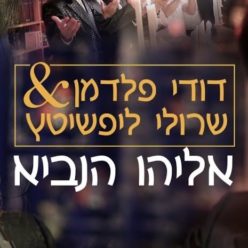
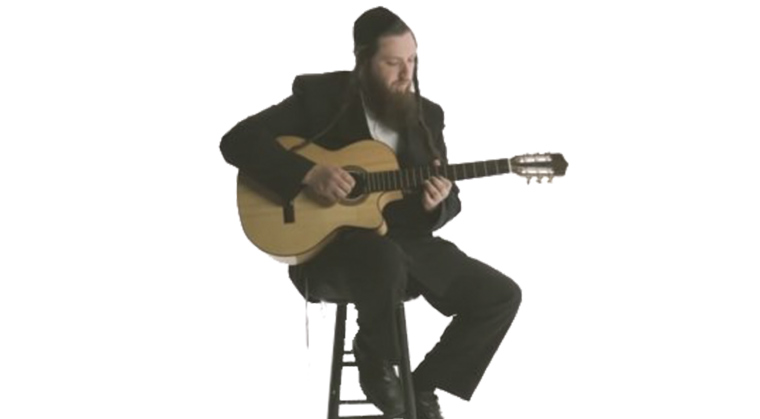
Joey (Yosef) Newcomb, a rising star of the kumzitz and inspirational concert circuit, says that his trademark guitar notwithstanding, he never actually took music lessons. “But as a teenager, I attended yeshivah Shaarei Arazim in Monsey [a niche yeshivah for different types of bochurim focusing on and building their individual strengths] and over there it was like everyone played guitar. I picked up a lot from them.” Enough, apparently to play his own accompaniment on his debut album To Be a Yid — which feels a bit like its own multi-track kumzitz.
At home, Abie Rotenberg’s Journeys albums and Shlomo Carlebach’s music were the dominant musical influences. Later, Rabbi Shmuel Brazil also shaped Joey’s view on the power of music during Melaveh Malkah kumzitzes in yeshivah.
“Until today,” says Joey, “I’m a big follower of Abie. There is so much depth in his music — and collaborating on music or singing with him is my musical fantasy. I got some warm feedback from him on the song ‘It’s Never Too Late.’ ”
The Breslov-inspired “It’s Never Too Late” was written by Joey during some moments of introspection (“It’s never too late to correct your mistakes because we know ein shum yei’ush b’olam klal…”). “I wasn’t feeling too happy with myself or the spiritual place I was in, and the niggun just came to me. I think that low feeling worked its way into the song and that’s why people can connect with it. It’s not about, ‘Oh, I didn’t know you went OTD and came back on, Joey!’ but it’s about the reality that every Jew can stumble and slip — and he can always return too.”
Joey was “discovered” by producer Doni Gross, during the time he was learning in kollel in Far Rockaway. After he played and sang at a Chanukah mesibah, fellow avreich Yitzy Gross, Doni’s brother, asked him to perform at a sheva brachos his in-laws were making. “I came along with my guitar, and somehow everyone was singing and dancing until three in the morning,” he recalls. The next day, Yitzy’s mother, Mrs. Gross, called to hire Joey for another sheva brachos. Before he knew it, his calendar started to fill up with events — and Doni Gross had caught his brother’s and mother’s enthusiasm. When Joey’s performing, it’s not about playing background music, but about connecting with the crowd. A born teacher, he’ll intersperse tzaddikim stories and divrei Torah too. “It’s not a successful evening for me unless the people are dancing or gathered around to share some Torah,” he says.
But although Joey was busy playing and singing at one event after another, when it came to writing music, he felt blocked. “For years, I’d been trying to compose but it just never worked. So I figured, you either you have it or you don’t have it, and I’d better just stick to playing acoustic guitar and singing.”
In the back of his mind, though, he never gave up on channeling inspiration into original music. Then, around two years ago, while Joey was sitting at the table one Motzaei Shabbos eating Melaveh Malkah, the niggun for what would become his popular “Borei Pri Ha’etz” came to him. A while later he added the words — which are essentially the brachos we say — because he wanted to create a vehicle for more connection to words we often just mumble our way through.
He recorded it, and forwarded it to a friend who immediately approved. And somehow, something unlocked. “Once one song was out, and someone appreciated it, I believed that more could come to me. I stopped sitting down to try and compose, and instead I tried to channel whatever inspiration came down to me into an actual niggun.” Now he has an entire album’s worth, songs of unity, of teshuvah, of joy (“No you don’t have to be Breslov to be b’simchah, but you gotta be b’simchah to be a Yid”), and of redemption (“When a person has nothing in his life, from a place of ‘ayin’, all the yeshuos will come”).
The song he hopes to write one day, if those floodgates of composition remain open? “Chassidus teaches that there is a lot of power in a wordless niggun,” he says. “Real music goes deeper and reaches higher than words can. That’s a concept I would like to write a song about. I guess I’d explain that idea in the song, and then let the refrain tell its own story by actually being wordless.”
(Originally featured in Mishpacha, Issue 750)
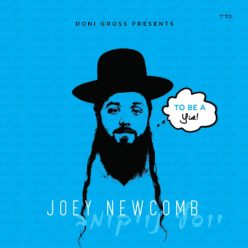
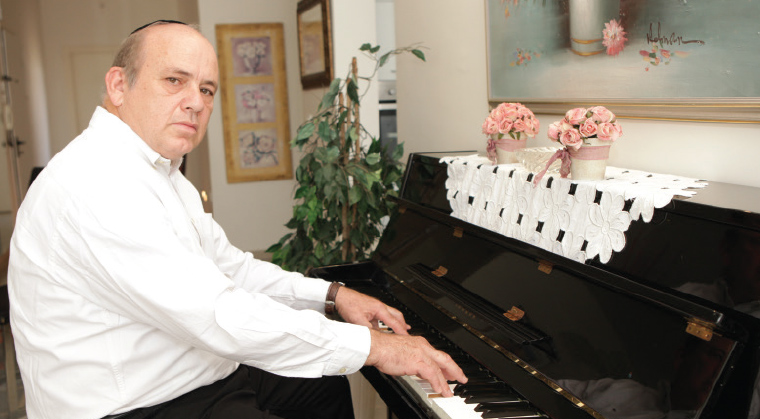
“When I wrote ‘Keitzad Merakdim’ in honor of my own chasunah a few decades ago [the one that goes ‘Kei-ei-tzad mera-a-akdim li-ifnei hakallah….dai dai lai lai lai lai lai lai…’], I guess I thought it was a good song, but I didn’t know it would become a classic,” says veteran composer and arranger Moshe Laufer. “Leibele Haschel a”h, my good friend, sang it at my wedding, but at the time we had no idea how popular it would become, so we put it in the middle of his Ad Bely Dei album [Leibele’s second album] instead of as the lead. A year later, I couldn’t believe it was all over the world, performed at every wedding.”
(Originally featured in Mishpacha, Issue 750)

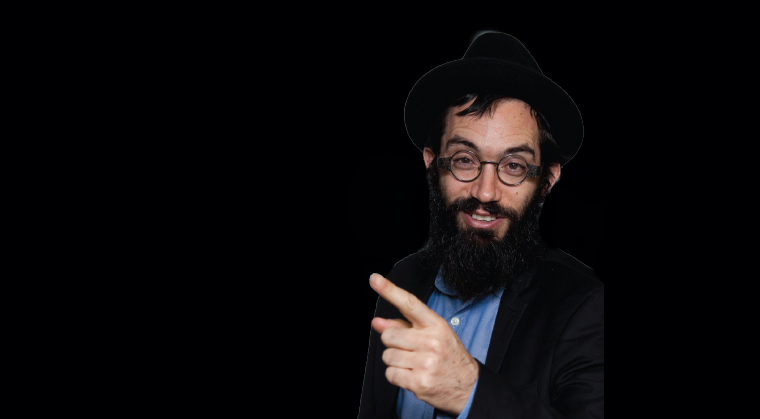
“Like many listeners, I’m sure, I would cry when I’d listen to Moshe Yess’s iconic ‘My Zaidy,’ ” says 8th Day composer Shmueli Marcus. This classic song, which paints a picture of the warmth of the old country and the pain of its loss, inspired Marcus’s own song “Babinyu,” which was released on the Brooklyn album in 2007. “To me, if there was a zeidy in the old country making us laugh and sing, then there definitely was a bubby who was busy creating the home environment where Zaidy’s story could unfold,” he says.
“My bubby, the late Mrs. Friedman a”h, lived on Montgomery Street in Crown Heights, and that’s where I discovered the warmth and all-encompassing power of belonging to the shtetl: There was the sound of a whistling kettle, the smell of fresh challah, the doorbell buzzing, and the secret table whispering of an upcoming engagement,” he says.
Yes, the shtetl had its hardships, its poverty and struggle, but Marcus definitely struck a chord with listeners when he played on the yearning for a close-knit community. He says that millions of Jews “can hear their shtetl calling,” as something inside longs for a forgotten world of warmth, a sense of utter belonging.
As the song relates so truthfully, “there ain’t no highway back to Krenitz.” The world of our zeidies and bubbies is irretrievably lost. But recently, Mica Soffer of Collive.com, proposed a music video about the “shtetl” of Crown Heights, and the quickened “Babinyu” remix — “My Shtetl Is Calling” —was created for the 2018 Stronger Closer album. (The video clip became a family affair, and includes guest shots of Bubby Friedman’s son Avraham Fried and grandson Benny Friedman.)
Shmueli says, “Mica Soffer and Danny Finkleman’s team get the credit for the film, but the bubbies who create this shtetl atmosphere get the real credit, and I want to thank them. What I’ve learned from my bubby is that providing fresh knaidlach is the easy part. The hard part is creating the warm home in which others can happily enjoy those knaidlach.”
(Originally featured in Mishpacha, Issue 750)
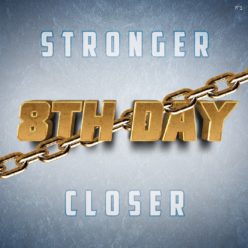
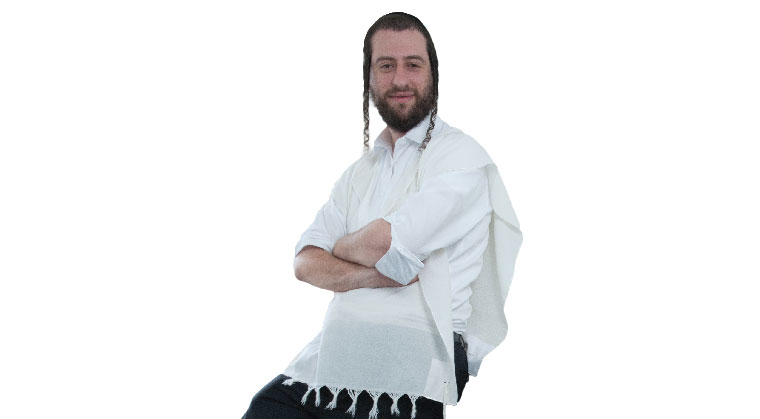
The new Shabbos Nachas album (officially Shabbos mit Yiddish Nachas) hit the stores, appropriately enough, on a Friday. The following Sunday, producer MOSHY KRAUS got an e-mail from a man who said he had printed out the entire playlist, brought it to the table, and sang his way through it with the family, beginning to end, at his Shabbos seudah.
Kraus, together with Yiddish Nachas cocreator Yossi Green, selected a combination of Shabbos classics from recent decades — songs such as “Veshamru,” “Yiddelach Shreit Shabbos,” “Ana Melech Malchei Hamelachim,” and “Vehoyu Limshisah,” and more recent songs such as “Kiddush” and Shmueli Ungar’s “Lekovod Shabbos Kodesh.” How did they choose from the thousands of Shabbos songs?
“I attend and sing at a lot of shabbatons and Shabbos events,” Kraus explains, “so I’ve really gotten a feel for which songs the olam likes to sing along to. Often, we hold a “botteh” after the Friday night seudah, which features a lot of singing, and that is especially telling. Some songs just get sung once, others get sung over and over, with great feeling and inspiration. Those are the ones I chose.”
There’s a new tune for Dror Yikra composed by Yossi Green, whose distinctive vocals are a great counterpoint to the children’s choir. Track number one is a new composition by Hershy Rottenberg from Antwerp, beginning in Yiddish with “Shabbos of der nacht, ven der Tatteh kumt aheim fun shul —On Friday night when Tatty comes home from shul….”
Kraus explains that, “Hershy had composed this tune for Pesach, when those traditional Yiddish words which children learn together with ‘Kadeish, Urchatz’ are said in so many homes. After Pesach, it seemed like the song was over. But it was too beautiful to just let it go, and we were thrilled to give it a new lease of life as a Shabbos song.”
What does Moshy Kraus sing at the Shabbos table when he and his family are actually at home? “I do practically the same as the man who e-mailed me — I sing the Shabbos Nachas playlist. Actually, my kids start as soon as I open the door — “Shabbos of der nacht, ven der Tatteh kumt aheim fun shul...”
(Originally featured in Mishpacha, Issue 749)
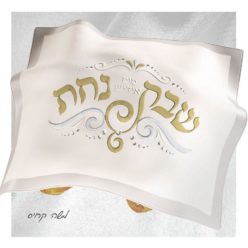

“This is very different from what you’re probably used to,” musician and well-known performer Chony Milecki admits about his recent album, titled The Great Farby, “but it will feel familiar at the same time. The songs are authentic, chassidish niggunim you’d hear at a farbrengen, but the music is up-to-date electronic dance music. It merges the authenticity of the shtetl with the technology of the modern world.”
The fusing of tradition and modernity comes naturally to Milecki. He grew up on shlichus in Sydney, Australia in a kiruv family and is now an acclaimed musician in Chabad circles across the world. His performances, he says, aim to “bridge the old and the new, bringing a modern dance beat to traditional songs.”
The Great Farby album is actually one long dance set, as each track segues into the other with no breaks. “I’ve gotten a lot of great feedback from two very different groups of people,” says Chony. “People who exercise, and people who are dealing with grief. I was very humbled recently when a woman who lost her son wrote to me, ‘Every time I’m feeling down, I put on your album… I use it for working out and I use it to pick me up.’”
Guests such as Beri Weber, Eli Marcus, Benny Friedman, Yanky Lemmer, Shmueli Ungar, 8th Day, and others provide the vocals on the album. The tunes are all familiar, but the titles might throw you off: For example, “Anu Amecha” is called “Want You,” and “Ana Avda” is called “Dira B’Calypso.”
“We have a concept of dirah betachtonim, to make This World hospitable to Hashem,” says Choni, “and because this arrangement has a bit of a Latin sound, I figured we’re bringing Hashem into Calypso too!”
The speeded-up electronic version of the heartwarming song played when the chassidim say farewell to each other — “Tayere Brider, mir vellen zich veiter zehn, der Eibishter vet geben gezunter leben, mir vellen zich veiter zehn” (he calls it “Bring It Home”) — is sort of Choni’s personal anthem.
“There is a lot of travel within Chabad, with people going on shlichus to the ends of the world,” says Milecki. “The English lyrics sung by Eli Marcus — ‘Hey brother, I’ll see you soon, may G-d grant you health and livelihood… my heart is full of love and brotherhood…’ —bring a warm message of love and unity to all Jews everywhere.”
(Originally featured in Mishpacha, Issue 749)
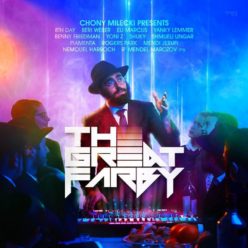
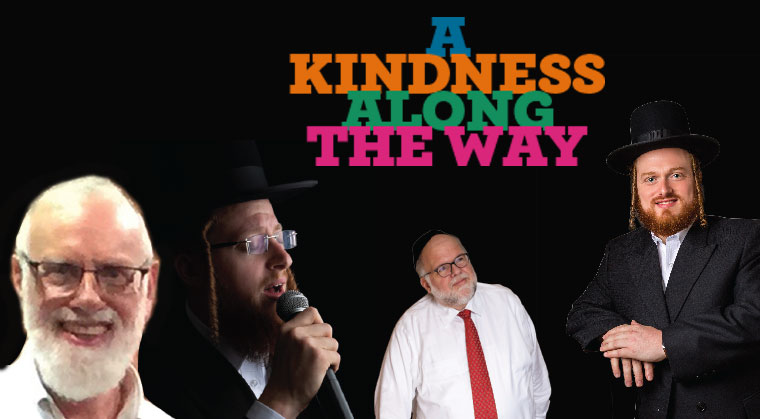
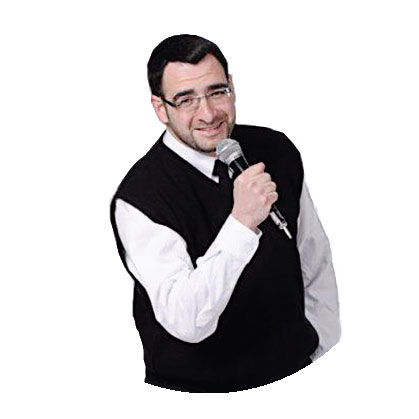
He has been a rebbi since 2000. He taught sixth grade for 13 years, and currently teaches eighth grade in Mill Basin Yeshiva Academy, about which he says, “I love what I do there.”
A talmid of Torah Vodaath, Yitzy is proud to have learned under Rav Avrohom Pam and Rav Yisroel Belsky zichronam livrachah. He received semichah from Rav Pam.
Yitzy has worked in Camp Agudah every summer since 1989 — today he’s a learning rebbi and director of musical programming. Once as a counselor, he was in his bunk desperate for a can of soda, but he was short a quarter. He called out, “I’ll compose the world’s worst song for a quarter right now,” when one camper named Yehoshua came through with the coveted quarter. “So I composed the world’s worst song, but then I realized it wasn’t really the world’s worst song. As a matter of fact, I ended up selling it for a thousand dollars to Shloime Dachs — it’s “Sheyiboneh” on One Day at a Time. Yehoshua and I split the profit.”
At age nine, the young music enthusiast picked up the accordion. For two years, this was his instrument, until his left arm started to hurt from holding it, and Yitzy decided to teach himself to play the keyboard. Today he’s comfortable on both, but the keyboard has become his primary instrument.
While he composed his very first melody when he was just eight years old, the first of Yitzy’s compositions to go public onto the music scene was “Pischu Li,” sung by Shloime Dachs on his 1998 Acheinu album.
(Originally featured in Mishpacha, Issue 748)
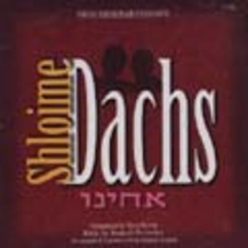
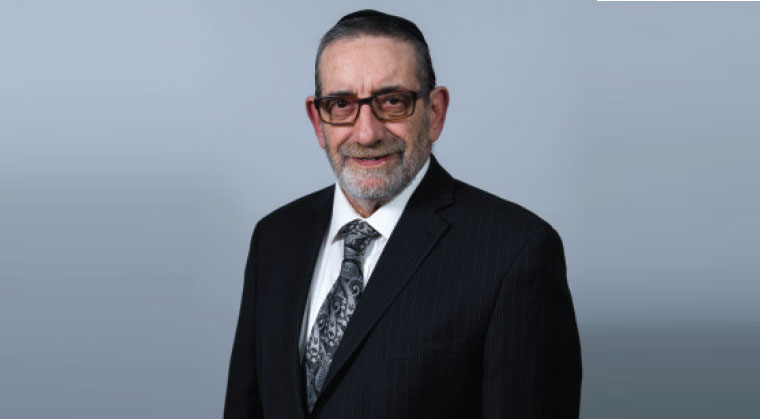
Although Pinchas Wolf has been composing songs for over 60 years and has hundreds of niggunim to his credit, most people had never heard of the Detroit chazzan until three years ago, when, at close to age 70, he decided to release an all-star album of his original songs, sung by some of the most prominent names in modern Jewish music. That was Shirei Pinchas 1; he’s already up to Shirei Pinchas 4, and this newest release is even more special because Reb Pinchas himself decided to sing on it. The album features returning star vocalists Shlomo Simcha, Micha Gamerman, Tzvi Silberstein, and Dovid Lowy, and Reb Pinchas — singing five of his own compositions.
While Wolf — who was born in a DP camp and grew up in Montreal, where he studied in Klausenberger and Lubavitch mosdos — has been composing for most of his life, he made a commitment as a teenager not to publicize his songs after one of his niggunim spread to the public and was then recorded under someone else’s name. But after undergoing major surgery a few years back, the surgeon told him he was humming a tune while sedated with general anaesthesia — and that made him realize the time had come: His music could no longer be ignored. Once the floodgates opened, album followed album, and the Shirei Pinchas series took off.
The new album, on which listeners can finally hear Reb Pinchas singing his own compositions, marks a major comeback of his voice. “I was intubated after that surgery nine years ago, and that scratched my left vocal cord. My voice was not fully back for a long time, but baruch Hashem I think it’s returned.”
Two songs released as singles in advance of the album highlight the versatility of his style. “Baruch Hashem Yom Yom” is both an up-to-date track and music video featuring Dovid Lowy, which has garnered enthusiastic reviews — and plenty of requests from high school seniors to use the catchy music for their own theme songs. The English lyrics were added by Chayala Neuhaus, giving the song a contemporary bounce.
“Shalom Aleichem,” on the other hand, is a warm, heimish composition with a touch of chazzanus, sung by Pinchas Wolf himself. In fact, Reb Pinchas says that he still practices the minhag he began as a bochur, composing a new niggun every single week in honor of Shabbos.
(Originally featured in Mishpacha, Issue 748)
